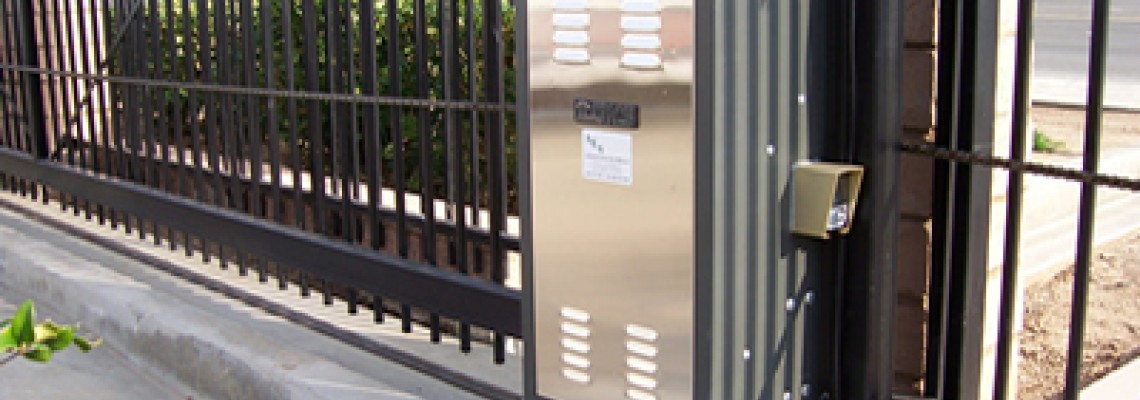
One of the main differences is the size and weight of the gate. Residential gate openers are designed for gates that are smaller, lighter in weight, and are not used many cycles per day. Commercial gate openers are designed for gates that are larger and heavier. This is because commercial gates typically receive more use and need to be able to handle the extra wear and tear. They also are designed to handle abuse much better and physically will weigh more than lighter, residential-grade units. Yes, they also cost more upfront, but they will save you many times over in the long run.
Another difference is the level of security provided. Commercial gate openers often come with additional security features, such as keypad entry or card reader access, to ensure that only authorized individuals can enter the property. Residential gate openers may not have these types of advanced security measures.
The type of power source used can also differ between the two. Residential gate openers are often powered by electricity, while commercial gate openers may use hydraulic or pneumatic power. This is because commercial gates may need more force to open and close due to their size and weight.
In terms of installation, commercial gate openers tend to be more complex and may require professional installation. On the other hand, residential gate openers are often easier to install and can be done by the homeowner.
Finally, the cost of a commercial gate opener is usually higher than a residential gate opener due to the additional features and durability required.
In summary, the main differences between a residential and commercial gate opener are the size and weight of the gate, the level of security provided, the type of power source used, the complexity of installation, and the cost.
